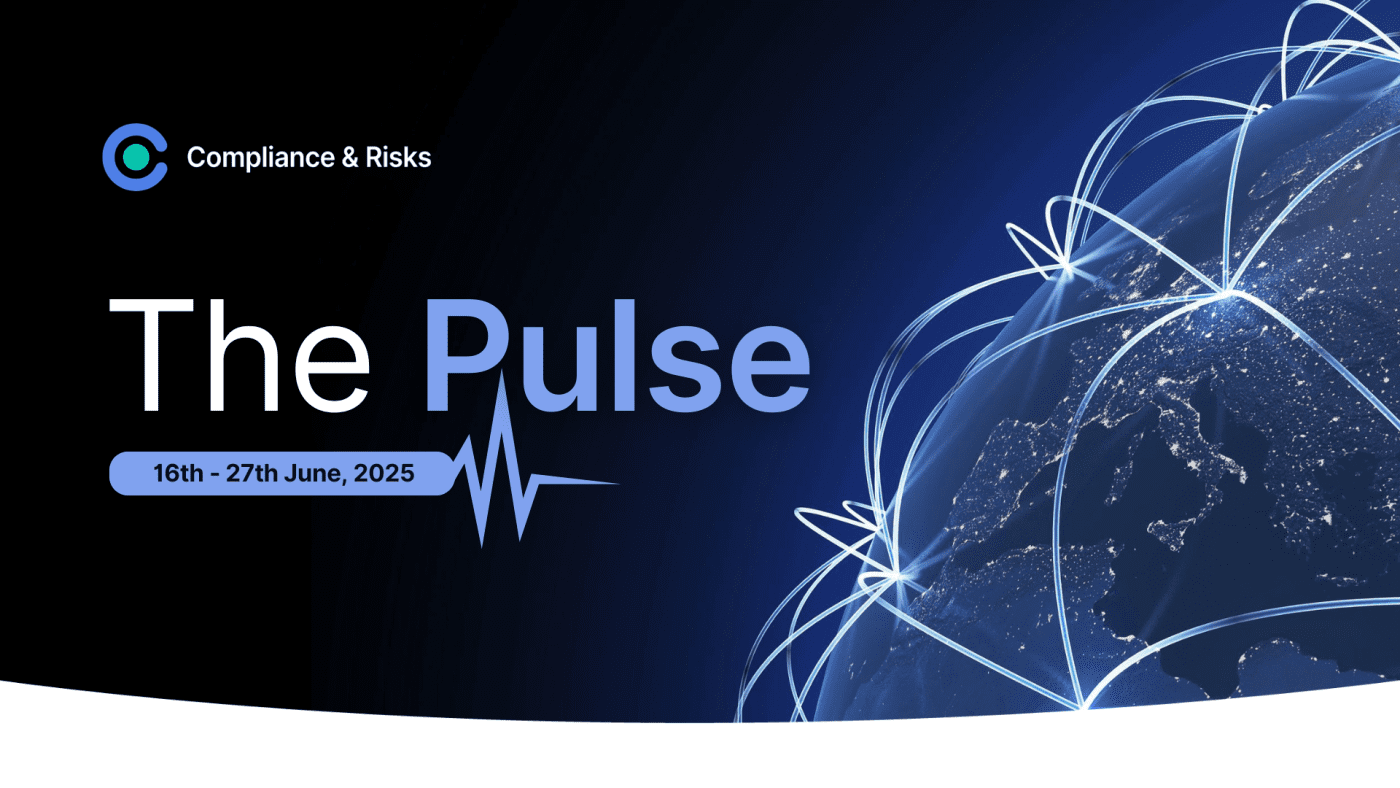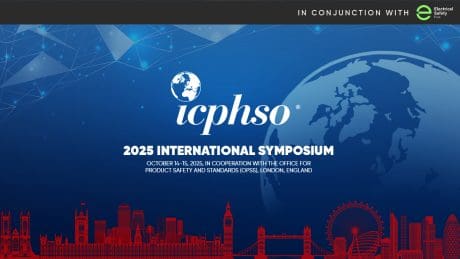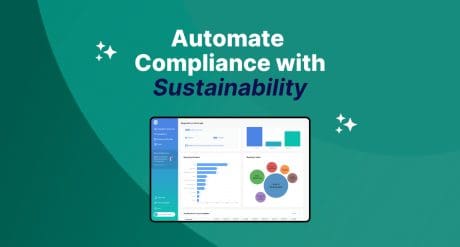
The Biweekly Pulse: 16th – 27th June – Packaging EPR, EU AI Act, & EU POPs Regulation Updates

The Pulse was originally posted on 2nd July, 2025. Further regulatory developments may have occurred after publication. To keep up-to-date with the latest compliance news, sign up to our newsletter.
Check out the latest 2025 Regulatory Compliance Updates with The Pulse, your biweekly source for global regulatory insights!
This Week’s Trending Sources in C2P
- Navigating the Digital Product Passport: What are Your Compliance Obligations?, Webinar Presentation, June 2025
- The Evolving State of US Privacy: Navigating US Data Protection Legislation in 2025, Whitepaper, June 2025
- Netherlands: Overview of New Standard Publications, List, June 2025
What is Our Content Team Talking About?
Important Upcoming Packaging EPR Deadlines for Colorado, Minnesota, and Oregon
by Rúan Doherty, Regulatory Compliance Analyst
In 2025, there has been significant legislative activity in the United States regarding extended producer responsibility (EPR) regulations for packaging. As several state legislative sessions conclude for the summer, states that have already enacted EPR laws are approaching key compliance deadlines within their programs.
Colorado
- From July 1, 2025, producers are prohibited from selling or distributing products that use covered materials in Colorado unless they are participating in the Producer Responsibility Program.
- By July 31, 2025, obligated producers are required to submit a report to Circular Action Alliance (the designated PRO) on the quantity of material they distribute in the state.
Minnesota
- By July 1, 2025, producers are required to register with Circular Action Alliance (the designated PRO) and sign the Minnesota Interim State Addendum (MNISA) as it becomes available.
Oregon
- From July 1, 2025, producers must be a member Circular Action Alliance (the designated PRO) if they sell, offer for sale or distribute covered products in or into the state.
- By July 1, 2025, the first fee payments are due, signifying the official start of the program.
For more information on producer registration in Minnesota, please refer to the following press release issued by CAA.
What Are Our Knowledge Partners Talking About?
European Commission Considers ‘Stop the Clock’ Move to Delay Enforcement of AI Act
by RINA
The European Commission is considering a “stop-the-clock” proposal to delay enforcement of certain provisions of the EU AI Act (i), particularly due to delays in developing technical standards and guidelines. According to a recent report from specialist legal publication MLex (ii), the European Commission is considering a move to pause enforcement of the Act and introduce amendments to “simplify” the law.
Regulatory Dilemma
The AI Act has been controversial due to concerns over regulatory overreach, compliance burdens, and the lack of clear technical standards. While the Act aims to establish guardrails for AI development, critics argue that its high-risk classification system and strict transparency requirements could stifle innovation and disproportionately impact European AI startups. Recently, the Trump administration has pushed back against the Act, viewing it as unfairly targeting U.S. technology companies, which dominate the global AI industry. This pressure, combined with industry lobbying and delays in finalizing technical guidelines, has led the European Commission to consider a “stop-the-clock” proposal to postpone enforcement until standards are fully developed. The debate highlights the tension between regulation and innovation, as policymakers seek to balance AI safety with economic competitiveness.
Current Timelines
Obligations for General-Purpose AI (GPAI) providers under the EU AI Act are set to take effect from August 2nd, 2025, requiring compliance with technical documentation, transparency, and risk mitigation measures. The General-Purpose AI Code of Practice, currently being developed, will serve as a key tool to help providers align with these requirements. Meanwhile, providers of high-risk AI systems face stricter obligations, including risk assessments, conformity checks, and ongoing monitoring, as outlined in the AI Act’s regulatory framework, with obligations set to take effect from August 2nd, 2026. The “stop-the-clock” proposal may delay enforcement of these provisions, but no timeline has currently been set. A delay on enforcement by around six months to a year has been suggested by digital policy experts.
What’s Next?
AI system providers must ensure they are fully prepared for compliance, proactively aligning with regulatory frameworks, engaging with policymakers, and anticipating enforcement rather than relying on potential delays as the European Commission considers a “stop-the-clock” proposal that may temporarily alter timelines.
References
(i) Regulation – EU – 2024/1689 – EN – EUR-Lex
(ii) EU Commission eyes pausing AI Act’s entry into application | MLex | Specialist news and analysis on legal risk and regulation
What Are Our Clients Asking About?
What are the Current PFOS Limits According to the EU POPs Regulation?
Answered by Dieudonné Ymedji, Senior Regulatory Compliance Specialist
Under Regulation (EU) 2019/1021, there are currently two different UTC limits for PFOS applicable to various types of articles. The limits are set at 0.1% by weight for semi-finished products and parts, and 1 µg/m² for textiles or other coated materials, such as textile surfaces, paint, or galvanized layers. The specific threshold of 1 µg/m² for coated materials means that the presence of PFOS as a UTC in coated materials cannot exceed this limit.
On 14 April 2025, the European Commission adopted an amendment (not yet published in the EU Official Journal) to remove the 1 µg/m² UTC limit for coated materials and to introduce a more universally stringent UTC limit of 1 mg/kg (0.0001% by weight) for PFOS-related compounds in substances, mixtures, and articles. This revised limit applies to the whole article, including the coating layer.
As a result, starting on 3 December 2025, industries such as metal coatings and technical textiles will need to adjust specifications to ensure that PFOS-related compounds do not exceed ≤ 1 mg/kg in the final product.
Stay Ahead Of 2025 Regulatory Compliance Updates with The Pulse
Want to stay on top of 2025 Regulatory Compliance Updates?
All insights in The Pulse come directly from C2P – the trusted compliance platform used by over 300 of the world’s leading brands. With coverage across 195+ countries, C2P empowers you to achieve, maintain, and expand market access faster and with confidence.
C2P is an enterprise SaaS platform designed to meet your unique compliance needs. It brings together everything in one place – regulations, standards, requirements, and evidence – so you can manage compliance across the enterprise with ease.
Need more? Our tailored add-on packages unlock use-case-specific solutions, enriched global regulatory content, and direct access to a global team of subject matter experts and professional services.
C2P is your key to unlocking global market access.
- Accelerate time-to-market for products
- Reduce non-compliance risks that impact your ability to meet business goals and cause reputational damage
- Enable business continuity by digitizing your compliance process and building corporate memory
- Improve efficiency and enable your team to focus on business critical initiatives rather than manual tasks
- Save time with access to Compliance & Risks’ extensive Knowledge Partner network
Keep Your Finger on the Pulse of Regulatory News!
Join 30,000+ compliance professionals for 2025 regulatory compliance updates on hot compliance issues, market insights on the latest trends, and free regulatory webinars and whitepapers








